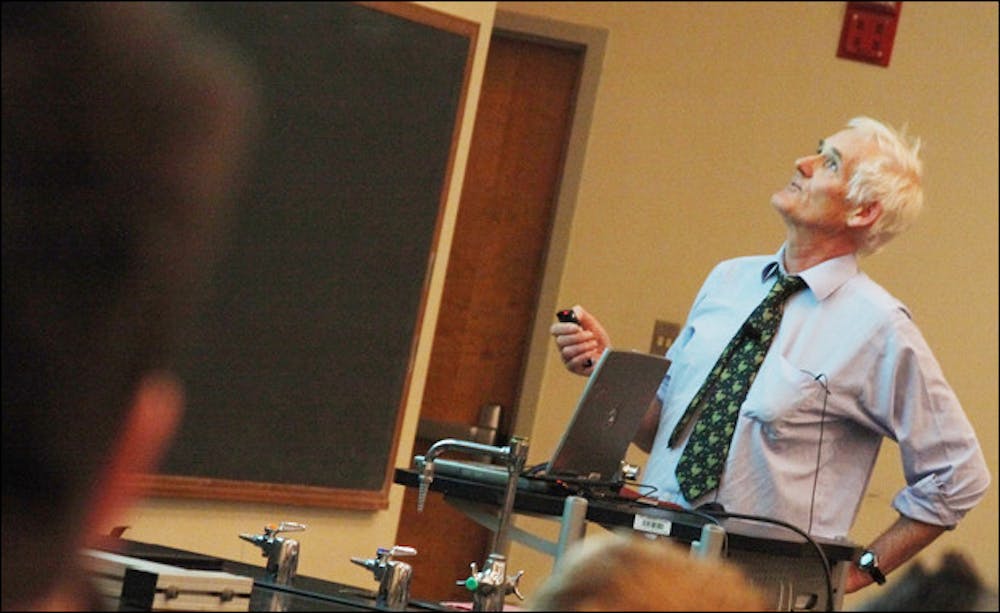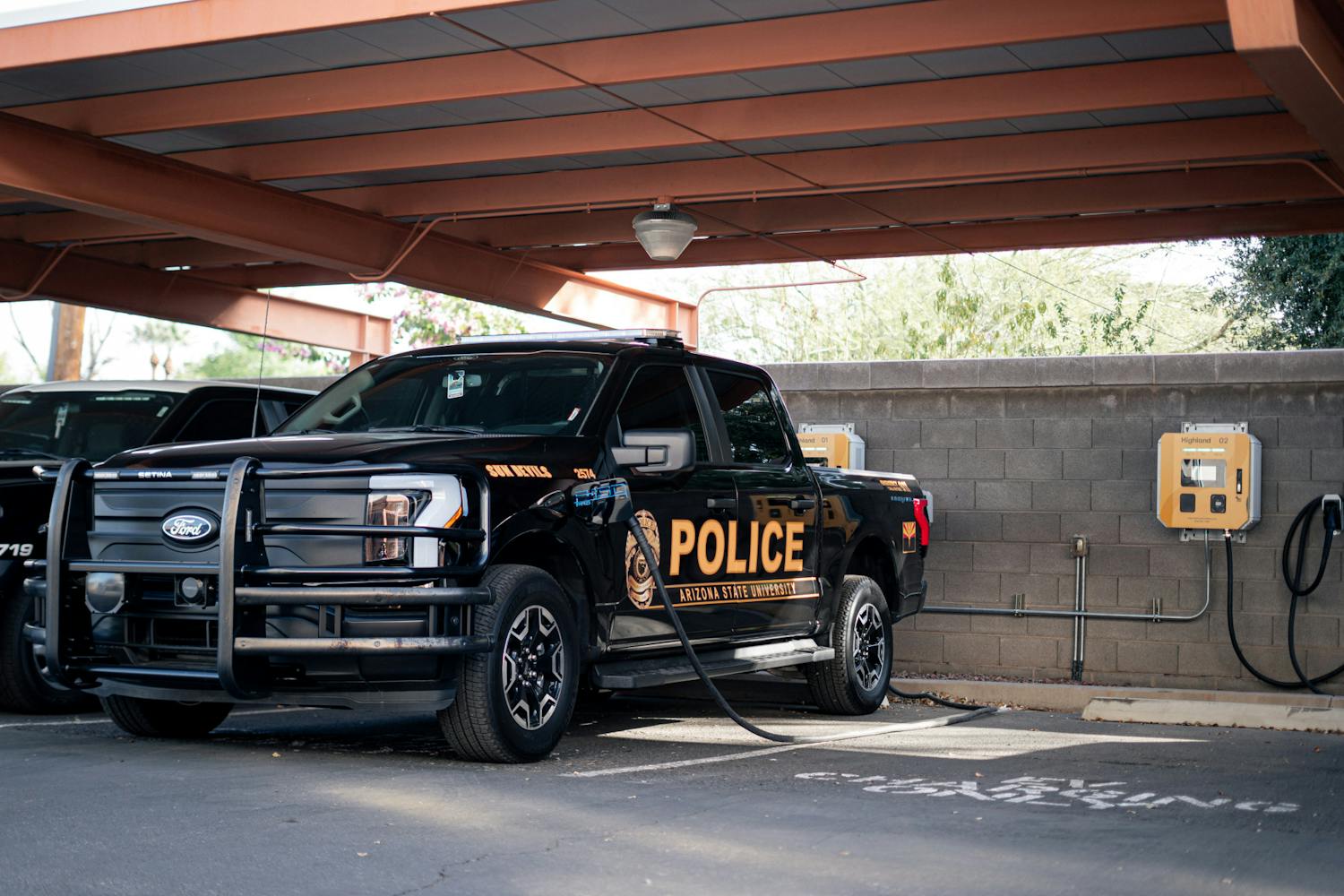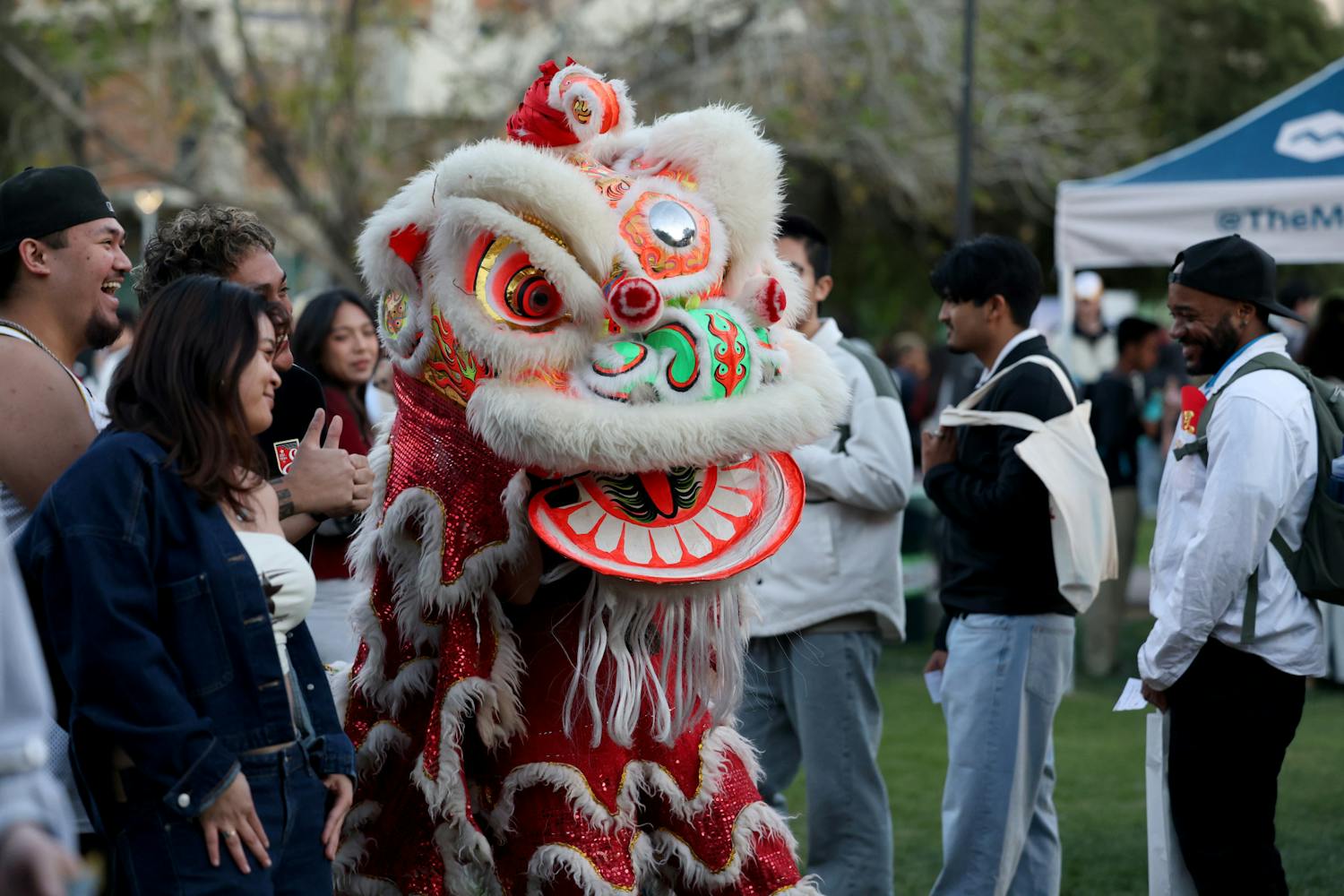National Mathematics Awareness Month, created by the Joint Policy Board for Mathematics, is hoping to help people understand the link between math and climate change.
Many issues that relate to mathematics, such as voting, the brain, Internet security and medicine, have been themes of the month in the past, while this year there is a focus on mathematics and climate.
“Math Awareness Month actually used to be a week, but there’s been inflation,” said Wayne Raskind, a professor and the director of the School of Mathematical and Statistical Sciences.
Lord Julian Hunt, an honorary professor in the Department of Applied Mathematics and Theoretical Physics at the University of Cambridge in England and a visiting professor at ASU, delivered a public lecture on math and climate change on Friday.
Hunt’s lecture is one of many to be held this week, although it most closely relates to the topic of math and climate.
“The use of mathematics has enabled many important discoveries to be made and decisions to be taken,” he said.
Hunt discussed whether there has been climate change.
“If you’re plotting the temperature ... over the last 10 years, it has remained more or less flat,” Hunt said.
He said that over the last 50 years, temperature has been steadily climbing when comparing the temperatures from sea and land areas, but it is not so apparent when looking at only the past few years.
Hunt also said there is concern that if the overall temperature increases by 4 degrees by the year 2100, there will be an effect on humans and animals because of diseases and food supplies.
“The objective is that we should be able to do something about it by reducing the amount of carbon dioxide and other emissions,” he said.
Hunt gave examples of how weather and climate have affected the world, such as Hurricane Katrina and West Africa’s rising sea levels and flooding.
“One of the practical solutions is to be monitoring what’s happening to the climate,” he said.
This can be accomplished by taking measurements at the ground level and from satellites, Hunt said.
“If we have science and math, we choose the object or area that we’re concerned with,” he said. “We have to consider the aspects of those in order to do calculations.”
Shapes, like that of clouds, and the magnitude of variables, like the height and speed and the number of objects or collections, are used when determining climate change.
Hunt also discussed how data, which can be collected from places like ships and satellites, can be used in weather forecasting.
He said the data are not known very well, so guesses have to be made, which often leads to inaccurate weather forecasts.
“[By] measuring tomorrow’s weather, we can know more about yesterday’s weather,” Hunt said.
Toward the end of the lecture, Hunt talked about global warming and how it is a reality.
He said that progressively there has been an increase in carbon dioxide, and if people start turning off their air conditioners, walking to work and stop eating hamburgers, “the world will change.”
Vivek Singh, a physics and math senior, said he attended the lecture because his professor organized it and he’s interested in math lectures.
Singh said math lectures give him a greater variation in his physics and mathematical interests.
“The more applications I see that math is applied to, the more interest I can gain in math,” he said.
Garth Baughman, an economics senior, volunteered to help with the Math Awareness Month events.
“It’s about personal connections, about the community around the math department and helping to support that community,” Baughman said.
Reach the reporter at reweaver@asu.edu.




